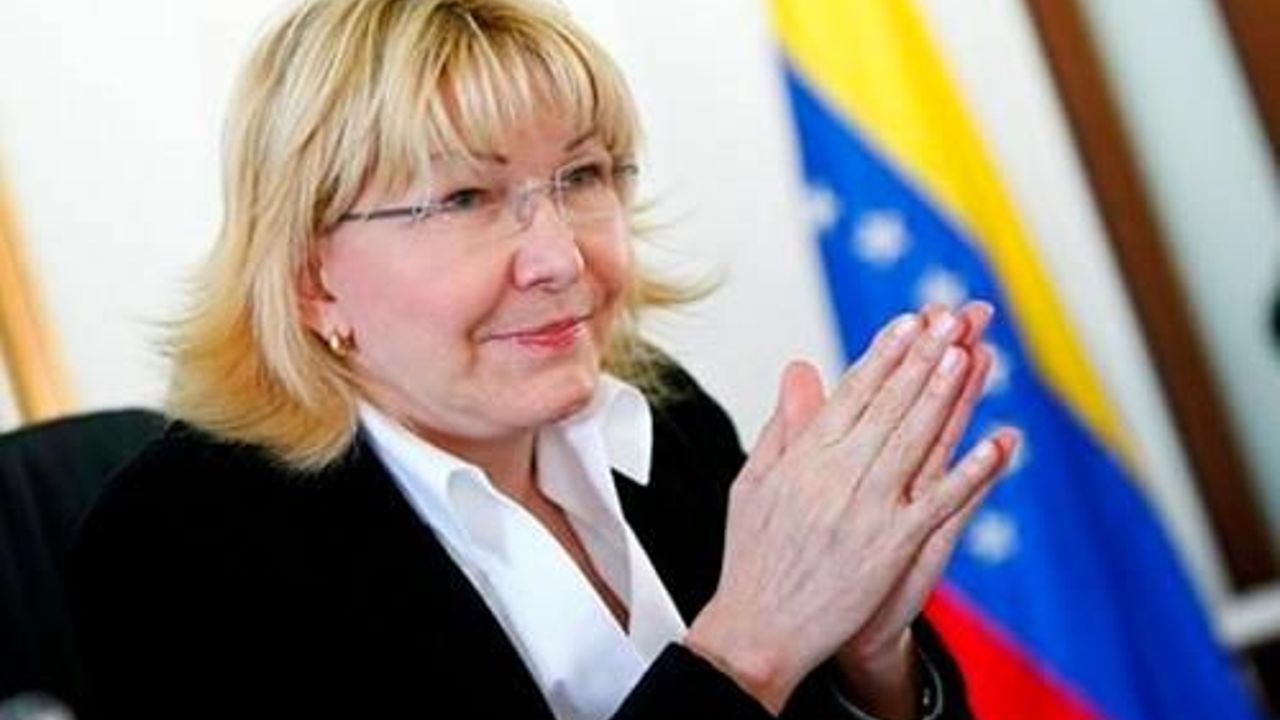About 800 detained in Venezuela anti-smuggling program
World |
Operation aimed to curb the smuggling of state-subsidized products into neighboring Colombia will be expanded to include a maritime element.

Font Size:
Venezuela has detained more than 800 suspects since it launched an anti-smuggling operation in August along its border with Colombia, the country's top prosecutor said Friday.
Speaking to the Venevisión television station, Attorney General of the Public Prosecutor Luisa Ortega Díaz said the vast majority of those detained were now in prison.
As of today, there are 814 people detained, 651 are in custody, 125 are under alternative preventive detention measures and 15 are set to be brought (before the courts) during the course of the day, Díaz said, adding that 23 people had been freed.
Días said 68 regional and national prosecutors were working on the anti-contraband operation, which is targeting those who are smuggling state-subsidized goods out of the country into neighboring Colombia.
Ortega Díaz also said that steps would be taken to combat maritime smuggling. She accused some fishermen, who are granted discounted fuel for their fishing boats to ensure national food supplies, of transferring the subsidized fuel to larger vessels off shore.
In addition to fuel, Venezuela also heavily subsidizes food and other materials, which can be sold for substantial profits on Colombian markets.
The socialist country is thought to have the largest oil reserves of any country, and the subsidies allow for a medium-sized car gas tank to be filled for less than one US dollar.
In mid-August a month-long trial of nightly border closures was implemented, with 17,000 troops stationed at strategic points along the country's porous 1,370-mile (2,200 kilometer) border with Colombia.
It was later announced the trial would be extended for another three months.
The government has also announced that it will introduce electronic fingerprint readers in the country's supermarkets and food stores to ensure individuals are not buying particularly staple products in excess.
The move, which the government said would be introduced in November, has sparked controversy, and some Venezuelans have already taken to the streets to protest, particularly in the west of the country -- home to a number of opposition strongholds.
Opposition politicians have criticized the biometric system, arguing it is tantamount to rationing.
Officials in Venezuela estimate some 40 percent of subsidized goods are smuggled out of the country, and have blamed the practice for widespread shortages of staple goods seen across the country. Critics, however, say ongoing economic and political crises are the true cause of Venezuela's bare shelves.
The country's central bank recently said annual inflation rose to an eye-watering 63.4 percent, and although no economic forecasts for 2014 have been given, some international economists say they expect negative economic growth of around 5 percent.
Concerns over the availability of basic goods and the economy, as well as sky-high murder rates and an increasingly muzzled press, triggered mass protests against President Nicolás Maduro's ruling government earlier this year.
Marred by bloody violent clashes with the country's security forces, the protests led to more than 40 deaths, with hundreds more injured and arrested.
Anadolu Agency
Speaking to the Venevisión television station, Attorney General of the Public Prosecutor Luisa Ortega Díaz said the vast majority of those detained were now in prison.
As of today, there are 814 people detained, 651 are in custody, 125 are under alternative preventive detention measures and 15 are set to be brought (before the courts) during the course of the day, Díaz said, adding that 23 people had been freed.
Días said 68 regional and national prosecutors were working on the anti-contraband operation, which is targeting those who are smuggling state-subsidized goods out of the country into neighboring Colombia.
Ortega Díaz also said that steps would be taken to combat maritime smuggling. She accused some fishermen, who are granted discounted fuel for their fishing boats to ensure national food supplies, of transferring the subsidized fuel to larger vessels off shore.
In addition to fuel, Venezuela also heavily subsidizes food and other materials, which can be sold for substantial profits on Colombian markets.
The socialist country is thought to have the largest oil reserves of any country, and the subsidies allow for a medium-sized car gas tank to be filled for less than one US dollar.
In mid-August a month-long trial of nightly border closures was implemented, with 17,000 troops stationed at strategic points along the country's porous 1,370-mile (2,200 kilometer) border with Colombia.
It was later announced the trial would be extended for another three months.
The government has also announced that it will introduce electronic fingerprint readers in the country's supermarkets and food stores to ensure individuals are not buying particularly staple products in excess.
The move, which the government said would be introduced in November, has sparked controversy, and some Venezuelans have already taken to the streets to protest, particularly in the west of the country -- home to a number of opposition strongholds.
Opposition politicians have criticized the biometric system, arguing it is tantamount to rationing.
Officials in Venezuela estimate some 40 percent of subsidized goods are smuggled out of the country, and have blamed the practice for widespread shortages of staple goods seen across the country. Critics, however, say ongoing economic and political crises are the true cause of Venezuela's bare shelves.
The country's central bank recently said annual inflation rose to an eye-watering 63.4 percent, and although no economic forecasts for 2014 have been given, some international economists say they expect negative economic growth of around 5 percent.
Concerns over the availability of basic goods and the economy, as well as sky-high murder rates and an increasingly muzzled press, triggered mass protests against President Nicolás Maduro's ruling government earlier this year.
Marred by bloody violent clashes with the country's security forces, the protests led to more than 40 deaths, with hundreds more injured and arrested.
Anadolu Agency
Similar News
Video News

WORLD
26 Mart 2024 - 11:18
Photo News






